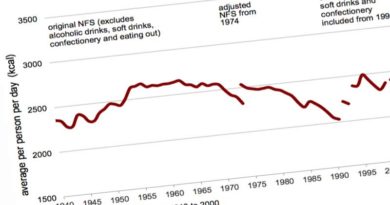Saturated fat & Parkinson’s Disease

Executive Summary
* A Swedish population study reviewed the association between dietary fat intake and the incidence of Parkinson's Disease (PD) in 41,597 people over an average of 17.6 years.
* The study claimed that higher saturated fat intake might be associated with an increased risk of PD, but that there were no associations with total fat, monounsaturated fat, or polyunsaturated fat. This makes little sense if one knows basic facts about fat.
* An association with dairy foods and PD might explain the finding for saturated fat alone, but the study only mentioned dairy twice.
* I looked for the best recent evidence on dairy foods and PD (as the researchers should have done). There is evidence for an association between milk intake and PD, but only in men. There is evidence for an association between low-fat dairy products and PD, but not high-fat dairy products. This undermines the saturated fat finding.
* The study has the usual flaws of population studies. The relative vs absolute risk was a key issue with this study. Incident rates were approximately 100 in 200,000 person years.
* No plausible mechanisms were proposed for the saturated fat finding (or the milk findings).
* I enjoyed reviewing this topic and found a number of risk factors for PD (and protective factors), which have far greater benefit or risk ratios than anything related to fat.
* This study should not deter people from saturated fat (which is in virtually every food), and it should not deter people from dairy foods (which provide valuable nutrients.)
The rest of this article is available to site subscribers, who get access to all articles plus a weekly newsletter.
To continue reading, please login below or sign up for a subscription. Thank you.



